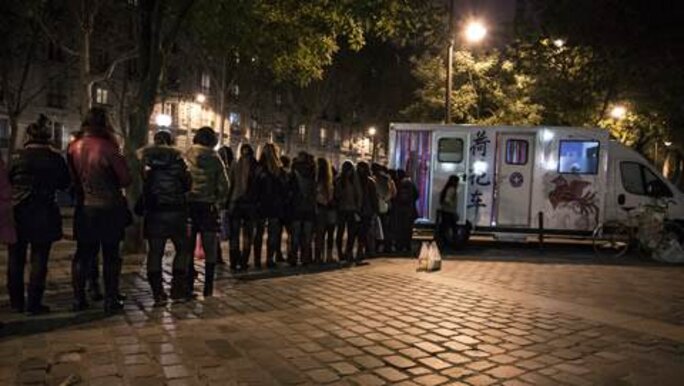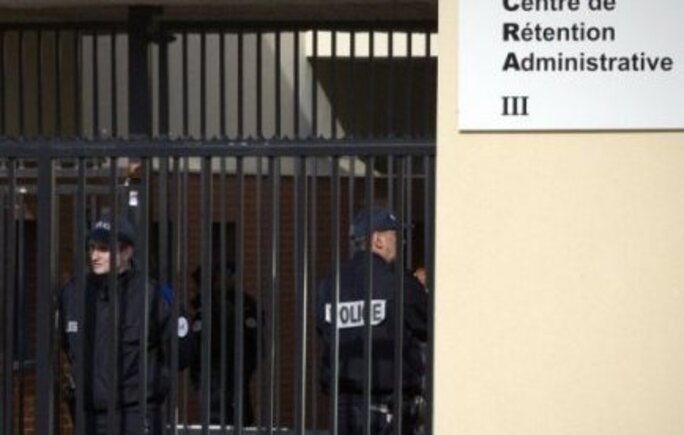It was supposed to remove sex workers from the street and help end the misery of people trafficking. Instead a tough law introduced in 2003 and championed by then-interior minister Nicolas Sarkozy has not only largely failed in its main aims, but in many cases it has even made matters worse, leading to police abuse and making prostitutes more vulnerable.
Among other changes the law, which came into force on March 18th 2003 and which the current government says it will abolish later this year, updated the rules on soliciting. In France, while prostitution is legal, solicitation is not, but in the past, only active soliciting – suggestive comments or behaviour – was reprimanded. The 2003 legislation included a new concept: passive solicitation, punishable by up to two years jail and a fine of 3,750 euros.

Enlargement : Illustration 1

But according to non-governmental organisations (NGOs) working in the field, this rather vague law has not, as was intended, brought about the dismantling of any criminal organisations. Instead, it has been used to arrest clandestine foreigners so that they can be expelled, it has led to police abuse and it has forced prostitutes to hide far from urban centres, thus making them more vulnerable and fragile.
The law also makes provisions to allow foreign victims of prostitution rings to obtain working papers in exchange for their testimony against the ring leaders, but in practice this provision has been little used.
Indeed, a scathing report helps to understand the fiasco resulting from the Sarkozy legislation on prostitution. The results of a fact-finding mission on police treatment of Chinese prostitutes in Paris were released on March 18th. Undertaken by the National Citizens-Justice-Police Commission, which includes The League of Human Rights, a lawyers' guild and an association of magistrates, the report, entitled Institutionalised Harassment: Chinese Prostitutes and the Crime of Public Soliciting, lends powerful support for those seeking the repeal of the Sarkozy legislation.
The Commission was called upon to act in December 2011 by the organisation Doctors of the World and its 'Blue Lotus' programme which aids Chinese prostitutes in Paris, and which reported abuse by the police after compiling corroborative testimony from 56 people.
The fact-finding mission began in June 2012 by hearing a number of women in the Blue Lotus office and in their field bus. The anonymous testimonies were gathered with the help of an interpreter. For the record, neither the Paris prosecutor's office, nor Paris police headquarters, nor the local police stations in the 12th and 13th districts of Paris, nor the police unions answered the Commission's written requests for testimony.
The results of the mission are enlightening. The prostitutes who made statements all say that they are arrested on a whim, whether in the Bois de Vincennes, in Belleville or at Porte de Choisy - all areas of Paris where sex workers traditionally ply their trade. This sometimes happens several times per week, a practice which the authors of the report say amounts to harassment.
Fear of police 'leaves assaults unreported'
Although prostitution is legal, these women say they are often arrested for a variety of reasons, even if they do not solicit. "You just have to be a Chinese woman in the street to be considered to be soliciting," one woman said in July 2012. Another was arrested while in a car. These repeated arrests create the impression that the police are acting in an arbitrary manner. In fact, the women are rarely convicted because it is very difficult to prove the crime of soliciting in a court of law.
More seriously, the report notes "the police's systematic violation of the peoples' rights". Insults, inappropriate comments and aggressive behaviour are common. "The police officer refused to believe us, was very aggressive and shouted 'bitch' several times. I was hauled to the station house where I spent over 12 hours without ever being notified that I was placed in detention," a prostitute testified in June 2012.
The fact-finding mission also found: "searches carried out under dubious legal conditions"; the "frequent and unjustified" use of handcuffs; and "detention conditions detrimental to human dignity". Detention periods can last between 12 and 24 hours and result in unnecessary harassment such as confiscating a bra and returning it only at the time of release. "They have to put it back on in the street, and this is seen as a humiliation," the report states.

In addition, the notification of their rights (to a lawyer, a doctor, an interpreter) is often "tardy". The manner in which their statements are written up is also contested. The women testifying to the Commission complain of police "pressure" and stress that "their version of the facts is never taken into account".
Another serious issue is the allegation of "extortion" against some police officers who fail to return the money the women had on them when placed in detention.
In terms of efficiency, the Commission notes that the prostitutes picked up for soliciting are "rarely sent before a court," and even more rarely convicted. One of them, however, did describe her trial: "The judge preached at me by asking 'Why do you do this rather than learning French or a trade?' I was given a suspended fine of 90 euros." On the other hand, they frequently appear before the prosecution authorities and are placed in detention centres for clandestine immigrants, something they find particularly hard to take. Oddly, the arrested women are never questioned about possible prostitution rings, the report stresses.
Although it does nothing to dismantle people trafficking networks, the police harassment does contribute to making the targets more vulnerable. The prostitutes questioned by the mission say they are so afraid of the police that they avoid reporting when they are victims of assault. In this way the law fails to protect the very victims it was designed to aid.
'Arrests never pose problems for people traffickers'
Another by-product of the legislation is that police pressure has changed the way the prostitutes operate. "The Porte de Vincennes [location in south-east Paris] is now deserted between 11pm and 3am. The women hope to operate outside of police hours. But the NGOs (who stop work at 2am) also lose direct contact with them," the report notes. "The result is that social ties are severed and public health policies are jeopardised," it adds.
Even worse, some prostitutes adopt risky behaviour for fear of arrest. "In fact, in talking with the women interviewed during the mission, it was noted that the police often search for condoms as proof of prostitution, this can cause some women to not carry any, thus making them more vulnerable to sexually transmitted diseases," the report says.

During the presidential election campaign last year François Hollande promised to repeal the legislation and the Minister for Women's Rights, Najat Vallaud-Belkacem, recently said in an interview with Le Parisien newspaper that a new bill concerning prostitution and people trafficking will be put forward in the coming months. However, their allies Europe Écologie – Les Verts (EELV) or Greens may beat the government to it. A number of EELV senators, led by Esther Benbassa, have decided not to wait for ministers' proposals and this Thursday March 28th they will call on the Senate to repeal the 2003 legislation.
However, there is not universal agreement on the best way forward. At the Scelles Foundation, which battles sexual exploitation and human trafficking, there is agreement that the 2003 law has merely emptied the streets. But the Foundation argues that it is not possible to repeal the legislation on prostitution without replacing it with new legislation. It notes that prostitutes, particularly those from China, are real slaves, who arrive in France through organised networks which they must then reimburse.
Meanwhile the Syndicat du travail sexuel (STRASS) or Sex Workers Union, has a totally divergent opinion and goes even further than the EELV. It is demanding that plans to penalise the client be abandoned. They also want "the end to all penalisation and repression of sex work".
The full National Citizens-Justice-Police Commission report can be read here (in French only).
----------------------------------------
English version by Patricia Brett
(Editing by Michael Streeter)


